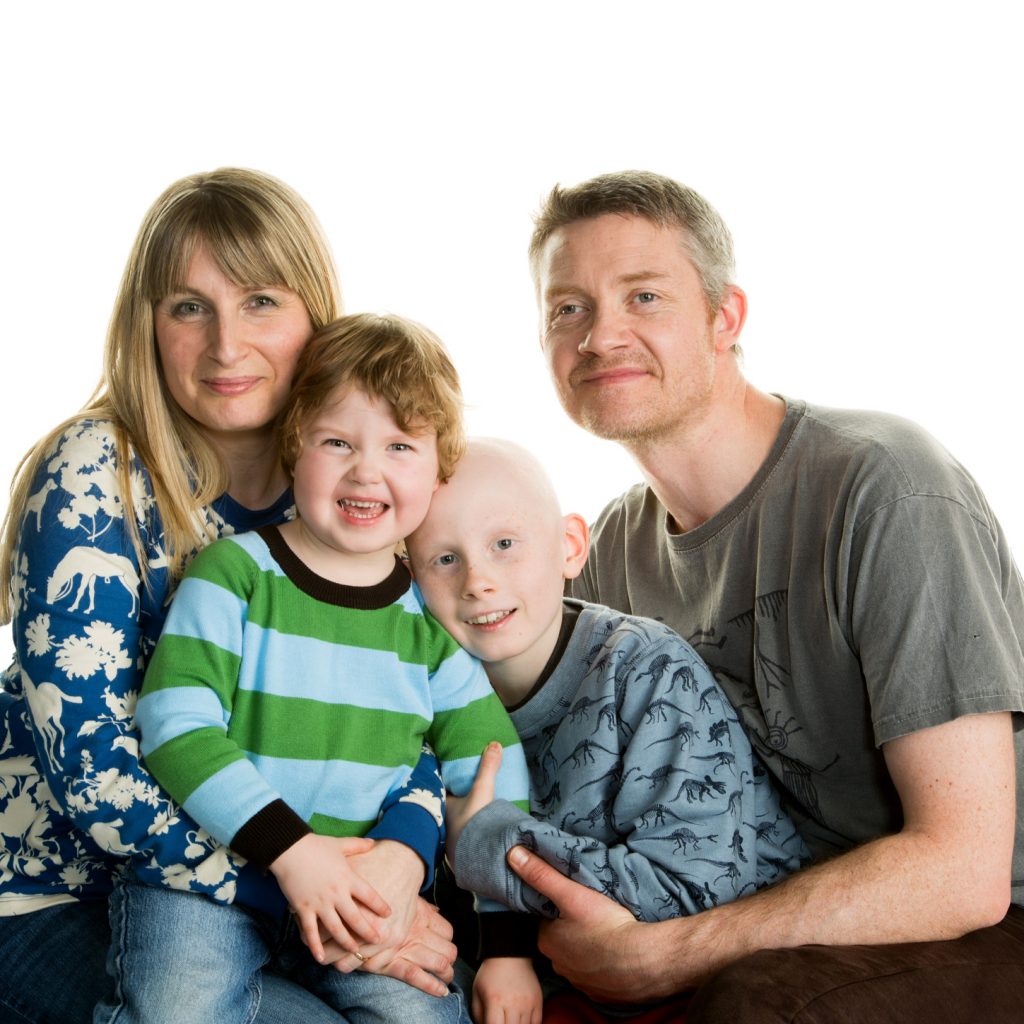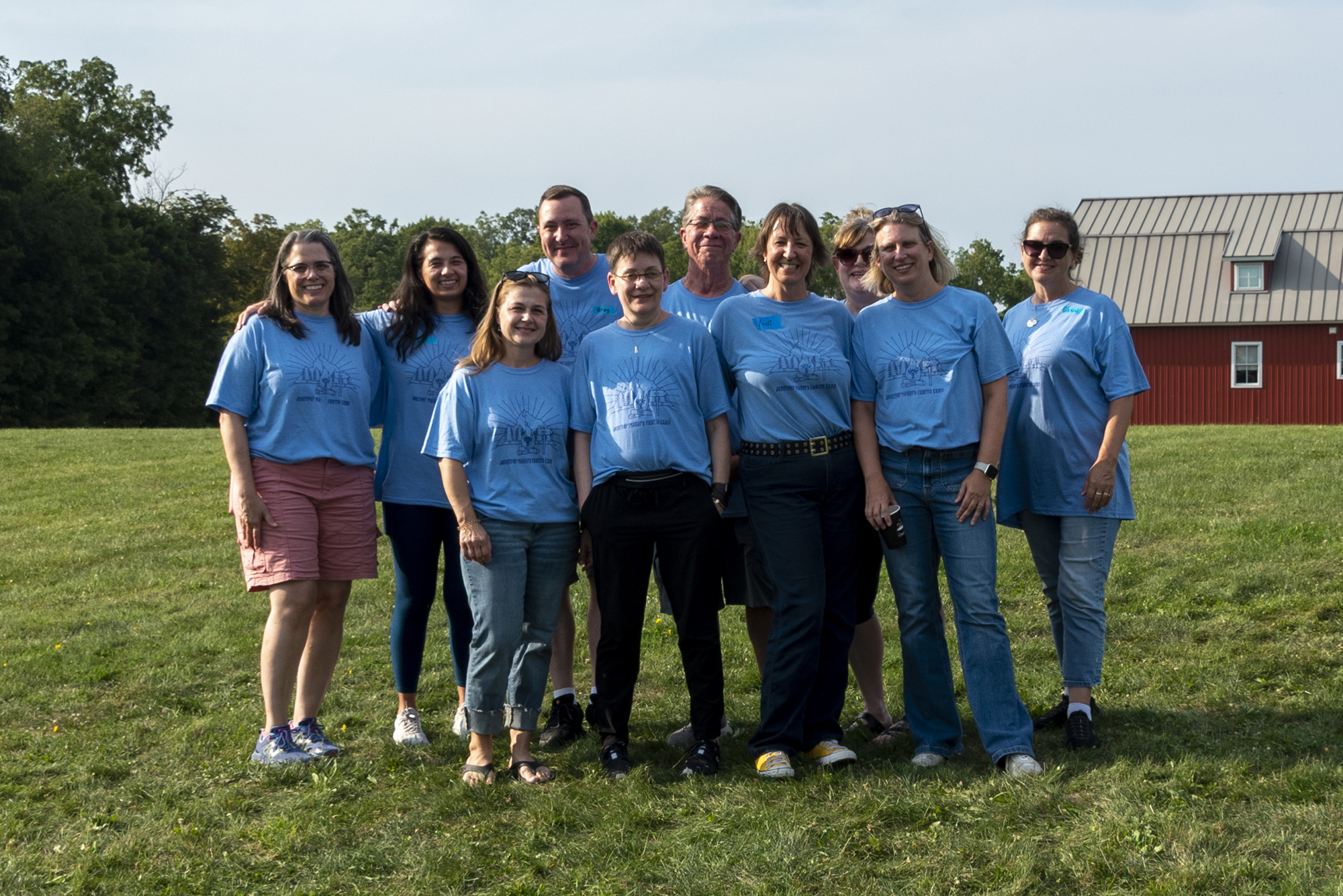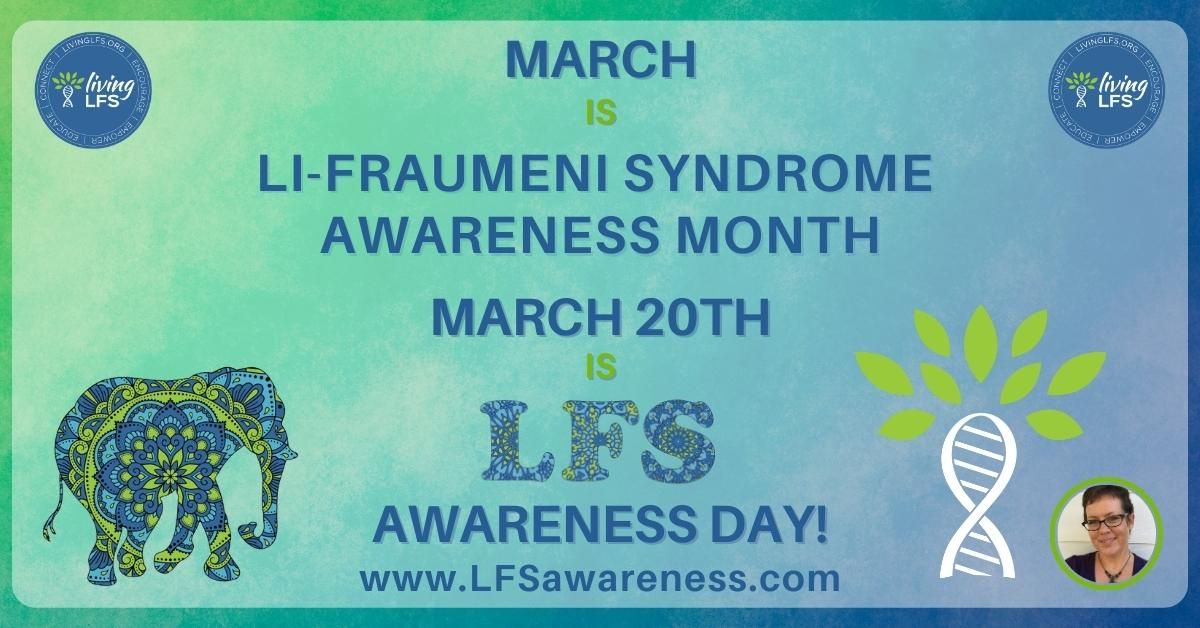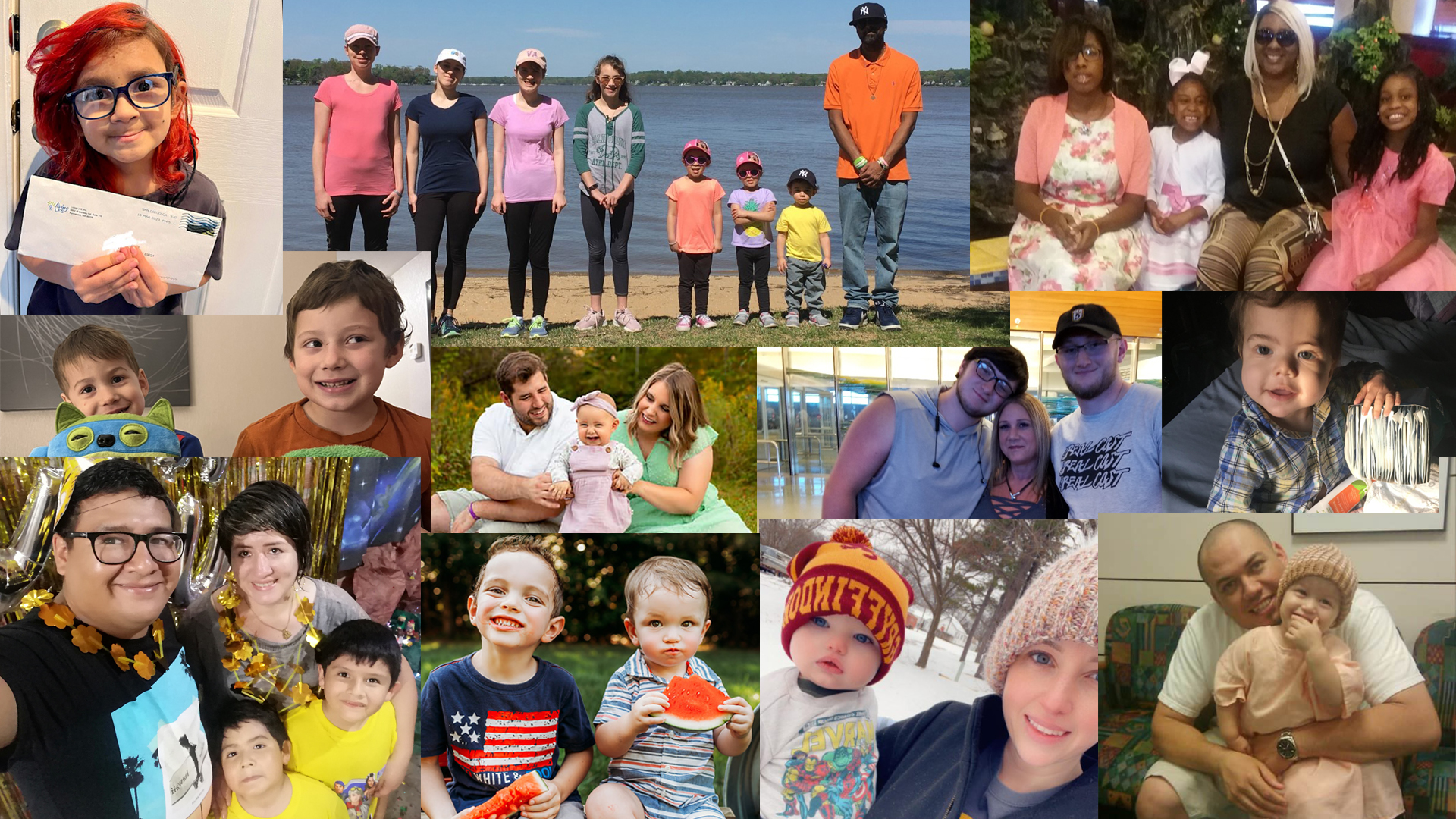Claire Roberts shares their family's story of not only one, but two children facing cancer and learning some of the challenges families with Li-Fraumeni Syndrome face along the way. Despite it all, their family is stronger, loves more and finds hope and compassion in new places with two amazing childhood cancer warriors. This is how they learned to live LFS.
When I think back I can vividly remember the point at which our life changed forever.
When I think back I can vividly remember the point at which our life changed forever. It was a normal, relaxing Sunday morning at breakfast. We have two boys, Henry, our youngest, was five months old at the time. I commented to my husband that Henry seemed very subdued and quiet, he agreed and we both felt he must be coming down with something, probably just getting a cold virus we thought. However after his milk feed Henry immediately threw up the entire feed all over the table. This was not the typical 'sicky' baby stuff that lots of baby's get after a feed, but more a violent, projectile vomit that we'd not seen with him before. I remember us both looking at each other thinking 'this isn't right' and I remember a strange, sinking feeling in the pit of my stomach. I'm not sure why I associate this memory with such significance. Cancer and LFS was far from our minds at this point. I naively didn't think babies got cancer and had certainly never heard of Li-Fraumeni Syndrome. However this was the moment that I had first experienced that strong feeling that 'something wasn't right' with my child and all the panic and fear that this evokes. This was indeed my first experience and lesson in trusting my 'gut instinct'.

Henry was diagnosed with a Choriod Plexus brain tumour when he was five months old. It was the cancerous type so he endured six cycles of intravenous chemotherapy via a Hickman Line and also four cycles of intrathecal chemotherapy which was delivered directly into his cerebrospinal fluid via a reservoir which is a type of port. He also had surgery to the brain four times. Seeing him go through treatment was excruciating. He was so tiny and I felt enormous guilt about why it was him and not me. I'd have given anything to swap with him to spare him the pain, I felt totally helpless and useless. It is a parent's natural instinct to want to protect their child and when you can't, and you have to watch them being put through invasive, gruelling treatment over and over again, there really are no words to describe how traumatic this is. His elder brother Edward was six at the time. Juggling Henry's care and treatment whilst trying to continue to provide stability and continuity for Edward seemed like an impossible task. However we did it and somehow we got through it. Luckily Henry responded extremely well to the treatment. He is now four years old and remains cancer free.
I naively didn't think babies got cancer and had certainly never heard of Li-Fraumeni Syndrome.
After Henry completed his treatment we were informed about Li-Fraumeni Syndrome, a cancer predisposition syndrome caused by a mutation in the TP53 gene. We were told Henry's type of tumour is strongly associated with this condition and we were offered genetic testing. We did not however feel ready at that point to go ahead with testing. We were still very battered and bruised emotionally after going through the shock of the diagnosis and all the treatment, long hospital stays etc. The previous six months had been very tough on us all and we needed to try to get back to some normality. We were also told that in the UK there is currently no additional screening for cancer for Li-Fraumeni patients other than annual breast MRIs for women. Therefore Henry would not receive any additional monitoring other than the brain and spine MRIs which he would need for many years following his brain tumour diagnosis. My husband and I thought about it and we wondered 'is there any point in knowing?' All it would surely bring is additional anxiety and worry and we felt we had had enough of that already. Our family history did not bring about any alarm or concern to our genetic counsellor either. She did not feel that we had an unusual history of cancer.
The strength, determination and positivity that he showed throughout his treatment was inspiring. Edward rang the ward's End of Treatment Bell exactly a year to the day we presented ourselves at the emergency department.
We enjoyed two years of being a 'normal family' after Henry's treatment finished. Scan time always brought about immense anxiety, however Henry continued to grow and he thrived. We were blessed to see him develop and recover fully from his treatment. Sadly this 'normality' was short lived. Our nine year old son Edward started complaining for several months about an ache in his calf on his right leg. At first we dismissed this thinking it was either growing pains or that he'd perhaps pulled a muscle due to him being a very active boy. We took him to see two doctors however, just to be on the safe side. The second one referred Edward for a scan. As time went on (there was a six week wait for this scan) that feeling returned in the pit of my stomach. I could see he was loosing weight and the pain he spoke about sounded like nerve pain and it appeared to be getting worse. I frantically rang the hospital begging for them to see him sooner. Due to spending so much time on a children's cancer ward with Henry I had knowledge of all different types of childhood cancers. My worst fears were realised when Edward showed me the lump on his thigh. I knew immediately then that this was cancer. I'll never forget the panic and fear. Li-Fraumeni came racing back into my thoughts and it felt like my whole world came crashing down. Edward was diagnosed with a very rare soft tissue cancer Epitheliod Sarcoma Proximal Type. We were told it's highly aggressive, has a high rate of relapse and metastasis. We also discovered that it had spread to his lungs. We found ourselves back at the same ward where Henry was treated, with the same staff but with a different child. It is impossible to put into words how this felt, the despair and worry was overwhelming. I felt as if I was in a heady dream like state where it just didn't feel real, like we had been shunted into a hellish parallel universe. Fortunately Edward's tumour responded excellently to chemotherapy. It had shrunk by nearly 90% after just a couple of cycles. This was remarkable considering this type of tumour is usually chemo resistant. In total Edward received 14 cycles of chemotherapy, 30 rounds of radiotherapy and surgery to his thigh. The treatment made him very sick and it was not an easy path. He suffered many temperatures, infections, including a line infection. We spent Christmas and both of the boys birthdays in hospital. Part of Edward's sciatic nerve had to be removed due to the tumour growing within it. This has caused mobility difficulties due to some loss of function in his foot. It is not yet known whether this will cause life long mobility problems. The hardest thing to hear him say was when he told me "chemo is awful, it makes you want to give up on life". Imagine hearing your child say that. However his medical team are delighted with his progress and he has far exceeded their expectations. The strength, determination and positivity that he showed throughout his treatment was inspiring. Edward rang the ward's End of Treatment Bell exactly a year to the day we presented ourselves at the emergency department. This was a very emotional event. Edward had been through so much. I hope with every inch of my body that this will be the end of cancer for them both, with Li-Fraumeni in the mix it's an additional worry and brings further uncertainty.
I would say, the support of speaking with others who have Li- Fraumeni, learning about how they cope and manage their anxieties, the sharing of research, knowledge and medical advances, gives me huge hope.
The hardest part initially of discovering that we were a Li-Fraumeni family was the isolation. As its such a rare disease you feel so completely lost and alone. People often say "I just don't know how you do it", "I can't imagine what you must be going through", and they ask "How do you deal with that?" To answer that question, I would say, the support of speaking with others who have Li- Fraumeni, learning about how they cope and manage their anxieties, the sharing of research, knowledge and medical advances, gives me huge hope. The support I get from online support groups and Li-Fraumeni Syndrome charities and organisations help greatly. They give me the strength to believe we can live with this, that it won't get the better of us. I love to hear the stories of adult childhood cancer survivors, those that have beaten the odds and made it despite a poor prognosis. I really believe that 'knowledge is power' and I find myself obsessing with keeping up with the latest advances in childhood cancer research. We, as parents, are our children's advocates and no one can fight for their needs as passionately as we can.
the lack of screening for my children presents a huge set of challenges and anxieties
On the other hand the lack of screening for my children presents a huge set of challenges and anxieties. Regular screening can identify tumours sooner when they are at their easiest to treat, before they spread and become a bigger problem. In the meantime I'm expected to be on my guard and use my instincts. I have to listen to my children when they complain of pain, and make a judgment about what needs investigating, as it is only us, as parents, who will pick up on these symptoms of cancer. That is a huge responsibility. We torment ourselves everyday about not taking Edward to the hospital sooner. Now every time they complain about an ache or pain I get that feeling in the pit of my stomach, that sinking feeling. It's hard sometimes to remain calm and pragmatic. Our children make us think and behave emotionally and that instinct to protect can cloud my judgment at times. The constant worry about relapse or a new cancer is a heavy burden, so overwhelming.
I do feel that we as a family have gained from our cancer experiences.
To end on a positive note, I do feel that we as a family have gained from our cancer experiences. We have met the most amazing children and families and made life long friends. We learned to not take anything for granted and love and live more. Every milestone and achievement is celebrated. If the love and compassion we now have could be measured via the volume dial on a car radio ours is blasting at its highest possible setting.



2 Responses
I am so overwhelmed by your story Claire . The love and strong bond between you as a family whilst experiencing so much unimaginable pain reflects throughout your writing , It has touched my heart and soul. My very best wishes to You, Al , Edward & Henry.
Sending lots of spiritual love.
Denise .
xxxx
This is so well written & insightful. Your strength truly amazes me. All my love to you, Al, Edward & Henry. Xxx